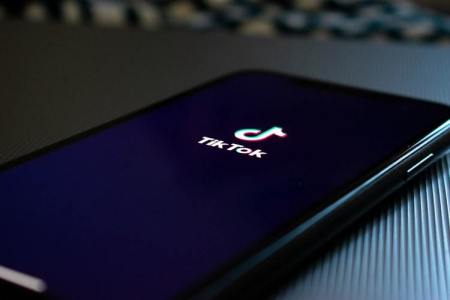Gen Z's use of TikTok surpasses Instagram, Snapchat as kids find platform 'fun,' 'positive': study

Children and teens between the ages of 12 and 17 are now using the China-based video-sharing social media platform TikTok more than Instagram and Snapchat, a new research report suggests.
Forrester Research released its 2021 Analytics Consumer Technographics US Youth Survey last Thursday, an online survey based on responses from over 4,602 respondents in the United States between the ages of 12 and 17.
The survey found a 13-point year-over-year increase in weekly usage of TikTok — up from 50% in 2020 to 63% in 2021 — among Generation Z youth. Meanwhile, Instagram’s weekly usage has declined 4 points from 61% to 57% and Snapchat weekly usage remained flat at 54%.
The research group also requested parents to discuss with their children what they like about TikTok, which is owned by Beijing-based technology firm ByteDance, more than other social media platforms.
Forrester found the “entertainment value” of TikTok to be one of the biggest reasons.
“Respondents frequently used the word ‘fun’ and ‘funny’ when relaying their kids’ preference for TikTok. As one respondent said: ‘It has funnier videos,’” a report reads.
Many children also said they like TikTok’s “short-form variety.”
“TikTok is seen among U.S. youth as an entertaining way to pass the time,” the study states. “The platform’s endless scroll of a random variety of short video clips keeps them engaged.”
Others said they like the “positivity of TikTok.”
“The ‘positivity of TikTok’ was cited by several respondents emphasizing their ability to freely express themselves (i.e., dancing) — some of whom are motivated by the potential of fame,” the study added.
TikTok is not the top “social media” app among Gen Z, the study showed, as 72% said they use YouTube at least weekly, representing a 3-point increase from 2020.
Last month, The Wall Street Journal reported on an increase in teenage girls going to doctors for the treatment of “tics” — physical jerking movements and verbal outbursts — since the COVID-19 pandemic began.
While it is rare for girls to have “tics,” experts at pediatric hospitals in the U.S., Canada, Australia and the United Kingdom believe that TikTok may be playing a factor.
Donald Gilbert, a neurologist at Cincinnati Children’s Hospital Medical Center who specializes in pediatric movement disorders, told the newspaper that his clinic had seen 10 new cases of tics among teens a month since March 2020. Before the pandemic, the average was around one case per month.
The increase has been seen at other hospitals as well. According to the Wall Street Journal, Texas Children’s Hospital reported seeing at least 60 teens with tics since March 2020. Before that, the hospital saw one to two cases per year.
The increase comes as videos marked with the hashtag #tourettes have trended on TikTok, amassing billions of views.
Gilbert told the newspaper that while the authenticity of the diagnosis of people in some of the videos might be in question, symptoms of teens who watch those videos and develop tics could represent functional neurological disorders. Teens who develop such a disorder could benefit from cognitive behavioral therapy and refraining from TikTok.
Some doctors aren’t ready to entirely blame TikTok for the increase in tics.
“There are some kids who watch social media and develop tics and some who don’t have any access to social media and develop tics,” Johns Hopkins University associate professor of psychiatry and behavioral sciences Joseph McGuire told WSJ. “I think there are a lot of contributing factors, including anxiety, depression and stress.”
In a statement, a TikTok spokesperson said that the company is “consulting with industry experts to better understand this specific experience” and assured that the “safety and well-being of our community is our priority.”
In late 2019, the U.S. government launched a national security review of ByteDance’s $1 billion acquisition of U.S. social media app Musical.ly. The investigation was launched after federal lawmakers voiced concern that the Chinese company could censor politically sensitive content. Questions were also raised about how TikTok stored its personal data.
A TikTok executive testified before members of Congress last month.
Last year, President Donald Trump imposed broad sanctions on TikTok that some said could have led to the app being removed from popular mobile app stores in the U.S. President Joe Biden reversed that order this year.






















